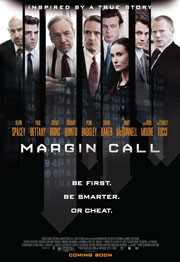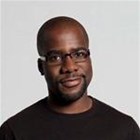
Top stories






LifestyleWhen to stop Googling and call the vet: Expert advice on pet allergies from dotsure.co.za
dotsure.co.za 2 days
More news

















The story takes place over a 24-hour period at an unnamed investment bank (probably Lehman Brothers). After another round of layoffs, 80 percent of the staff is fired. Unfortunately, this includes a long-standing employee in the Risk Department. Before he's escorted off the premises, he hands a flash disc to one of his underlings. His last words of advice? "Be careful."
The young hotshot decides to pass up on the celebratory drinks with the colleagues who were spared, so that he can dig a little deeper instead. What he uncovers is something that could wipe out the entire company. Over a series of meetings throughout the night, it soon becomes clear that the only way that the company will survive is by potentially bankrupting others instead. Can they get away with their plan before the rest of the world realises what's going on?
Margin Call is absolutely brilliant! Even though this is JC Chandor's directorial debut, he's done an amazing job. Firstly, he's brought together a wonderful cast that includes Zachary Quinto, Stanley Tucci, Paul Bettany, Kevin Spacey, Demi Moore, Simon Baker, and Jeremy Irons. They all bring their best. Secondly, he's created an eerily quiet setting with muted colours and music that's hardly there at all. Everything is stripped bare so the focus is on the people.
Chandor seems to have taken some inspiration from his father, who was an executive at Merrill Lynch for almost 40 years. And yet this isn't a portrayal of stereotypical bankers. Instead, everyone has a different role to play in the organisational hierarchy and has different beliefs about the right thing to do. Some just care about the money, which is why one keeps obsessing about what everyone earns (he's 23 and makes USD250 000 a year) and why another sees no problem in writing off the USD76 000 that he spent on prostitutes as an entertainment expense. Others feel differently, which is why one struggles with guilt at the thought of selling products he knows are junk and why another wishes he was still an engineer, building tangible things that actually make a positive difference in the world.
The movie doesn't answer the question of which view is right; it just presents them both and lets you decide for yourself. It does make the point that most of the people who complained the loudest when the markets came crashing were the same people who were happiest when everything was going well. We were willing to over-invest in real estate and happy to get loans that we couldn't afford. The minute it came crashing down, we were pointing the finger somewhere else. In other words, this was also our fault. No, it didn't help that so many bankers forgot that emotions often trump maths when they stitched together products that they barely understood, but we as individuals have to take some responsibility too. We were stupid and we got burned.
Mostly, Margin Call just wants to show us that not all bankers are the evil fat cats that we imagine them to be. If the first step to victory in battle is to know your enemy, this movie might make you stop seeing bankers as your enemies at all.
Rating: 4 out of 5
Running Time: 1 hours, 45 minutes
Age Restriction: 13 (contains strong language and occasionally complex financial jargon)
